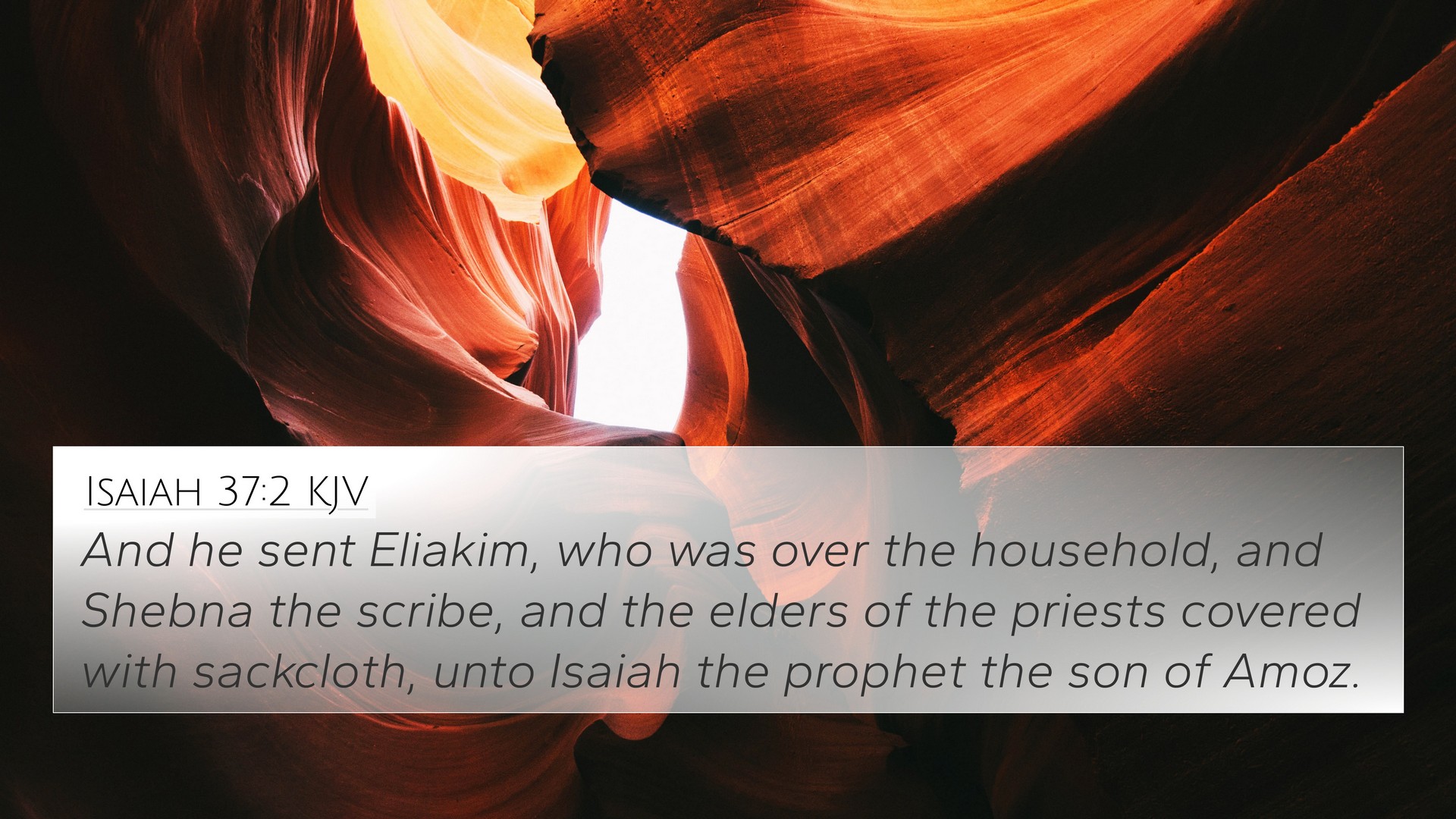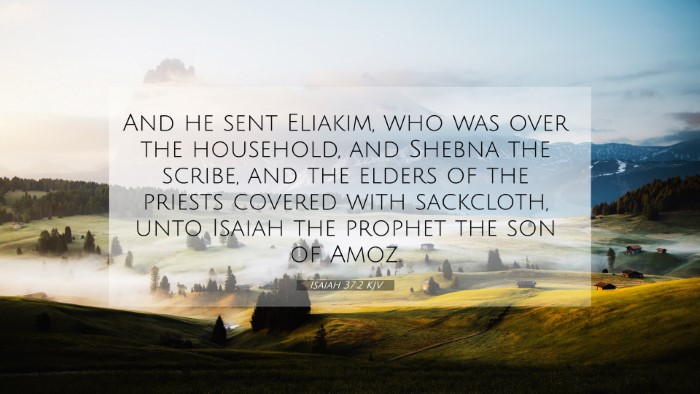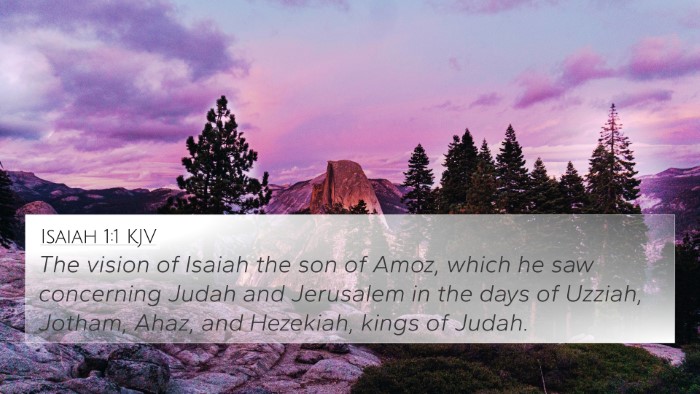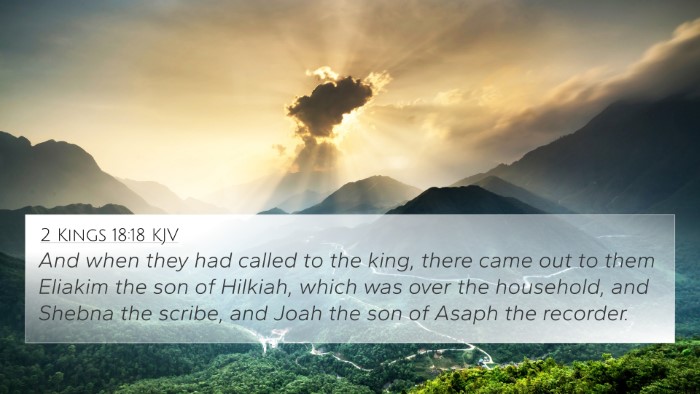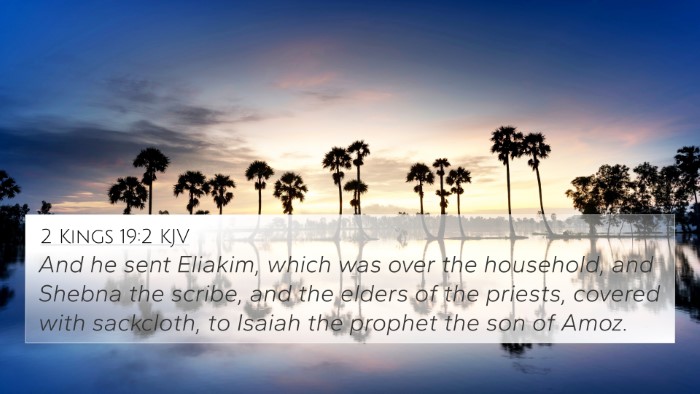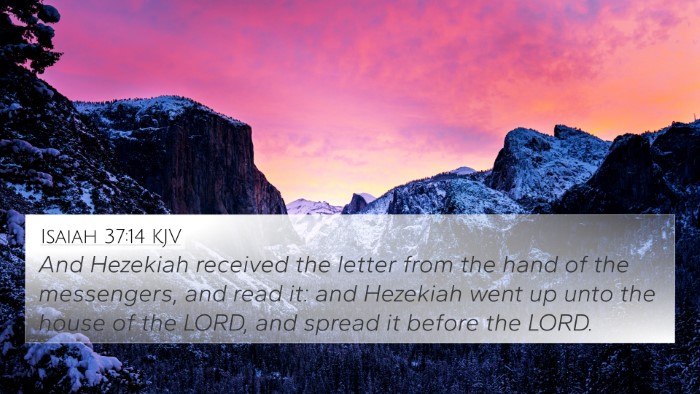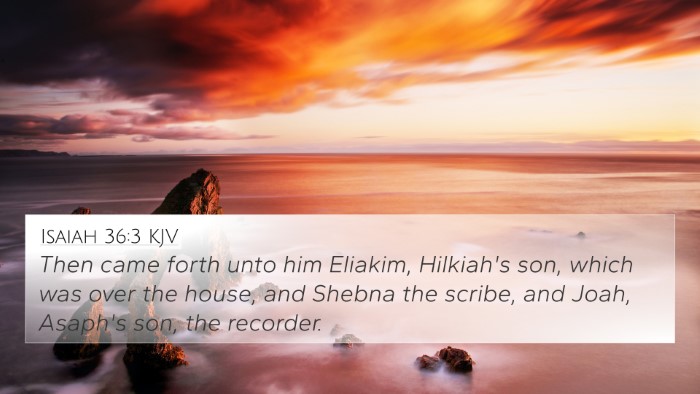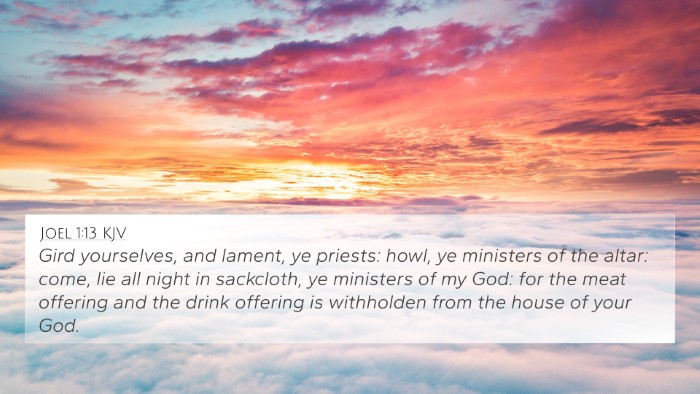Understanding Isaiah 37:2
Isaiah 37:2 reads:
“And he sent Eliakim, who was over the household, and Shebna the scribe, and the elders of the priests, covered with sackcloth, to Isaiah the prophet, the son of Amoz.”
This passage occurs in a significant context where King Hezekiah faces a dire situation with the Assyrian king, Sennacherib. Hezekiah's reaction to the threat is crucial and is indicative of his faith and reliance on God's word through the prophet Isaiah.
Verse Explanation and Insights
The following insights are drawn from public domain commentaries such as those by Matthew Henry, Albert Barnes, and Adam Clarke:
-
Context of the Verse:
Hezekiah is confronted with the overwhelming power of Assyria, and this prompted him to seek divine intervention. His act of sending for Isaiah, a prophet known for delivering God's messages, demonstrates a prioritization of spiritual counsel during a crisis.
-
Response to Threat:
Hezekiah's decision to enlist the help of Eliakim, Shebna, and the elders shows that he values collective wisdom, combining secular authority with spiritual authority. This reflects the biblical principle that when facing adversity, seeking help from trusted spiritual leaders is vital.
-
The Significance of Sackcloth:
Their attire, being covered in sackcloth, symbolizes mourning and desperation, which underlines the seriousness of their situation—this was not merely an administrative issue, but a national crisis that required profound prayer and humility before God.
-
Role of the Prophet:
Isaiah, as the prophet, plays a crucial role as a mediator of God's will. His presence signifies hope, as he will convey God's message directly to Hezekiah. This highlights the importance of prophetic voices in guiding the faithful during challenging times.
Bible Verse Cross-References
This verse connects with several other biblical passages that share similar themes of prayer, reliance on God, and prophetic guidance. Here are notable cross-references:
- 2 Kings 19:2 - Hezekiah sends the same emissaries to Isaiah, reinforcing the connection between crisis and prophetic intervention.
- Isaiah 36:3 - Setting the context where the Assyrian threat is first mentioned, contributing to understanding Hezekiah's response.
- Isaiah 38:1 - Discusses Hezekiah’s illness and need for divine assistance, further illustrating themes of reliance on God.
- Psalm 46:1 - “God is our refuge and strength…” embodies the trust that Hezekiah is placing in God during his time of need.
- Jeremiah 29:12-14 - This passage teaches about calling upon God and His promise to listen, paralleling Hezekiah's actions.
- 1 Thessalonians 5:17 - Encourages constant prayer, emphasizing that seeking God should be a continuous practice, much like Hezekiah's reliance on Isaiah.
- James 5:16 - The importance of prayer and seeking the righteous is highlighted here, aligning with the communal aspect of Hezekiah's movement towards Isaiah.
Thematic Connections
Isaiah 37:2 also engages with themes that are recurrent in scripture. Such themes include:
- Leadership and Humility: Hezekiah, despite being a king, shows humility by seeking the prophet's guidance in a dire situation.
- Role of Prophecy: The dynamic between the king and the prophet is critical in the biblical narrative, demonstrating that spiritual leadership is paramount in times of adversity.
- Collective Action: The involvement of the elders and officials suggests the importance of communal action in confronting crises.
- Prayer in Crisis: The act of seeking a prophet during a national emergency emphasizes the biblical view that prayer and divine consultation are essential responses to trouble.
Inter-Biblical Dialogue
This verse allows for rich inter-Biblical dialogue whereby readers can draw connections between the Old and New Testaments:
- Hebrews 11:6 emphasizes faith as essential in pleasing God, highlighting Hezekiah’s faith in seeking divine counsel.
- Matthew 18:20 reflects the biblical principle of gathering for prayer, which Hezekiah exemplified through his delegation.
Conclusion
Isaiah 37:2 serves not only as a historical account but more importantly as a timeless principle of faith and reliance on God’s guidance through His chosen messengers. In times of great difficulty, like those experienced by Hezekiah, the scripture teaches us to seek God fervently, embrace humility, and trust in prophetic messages that lead us back to divine truth.
This understanding links to a broader methodological approach in studying the scriptures through comparing verses, cross-referencing, and engaging with thematic studies. Tools for Bible cross-referencing are essential for believers seeking to deepen their faith and understanding of God’s will.
